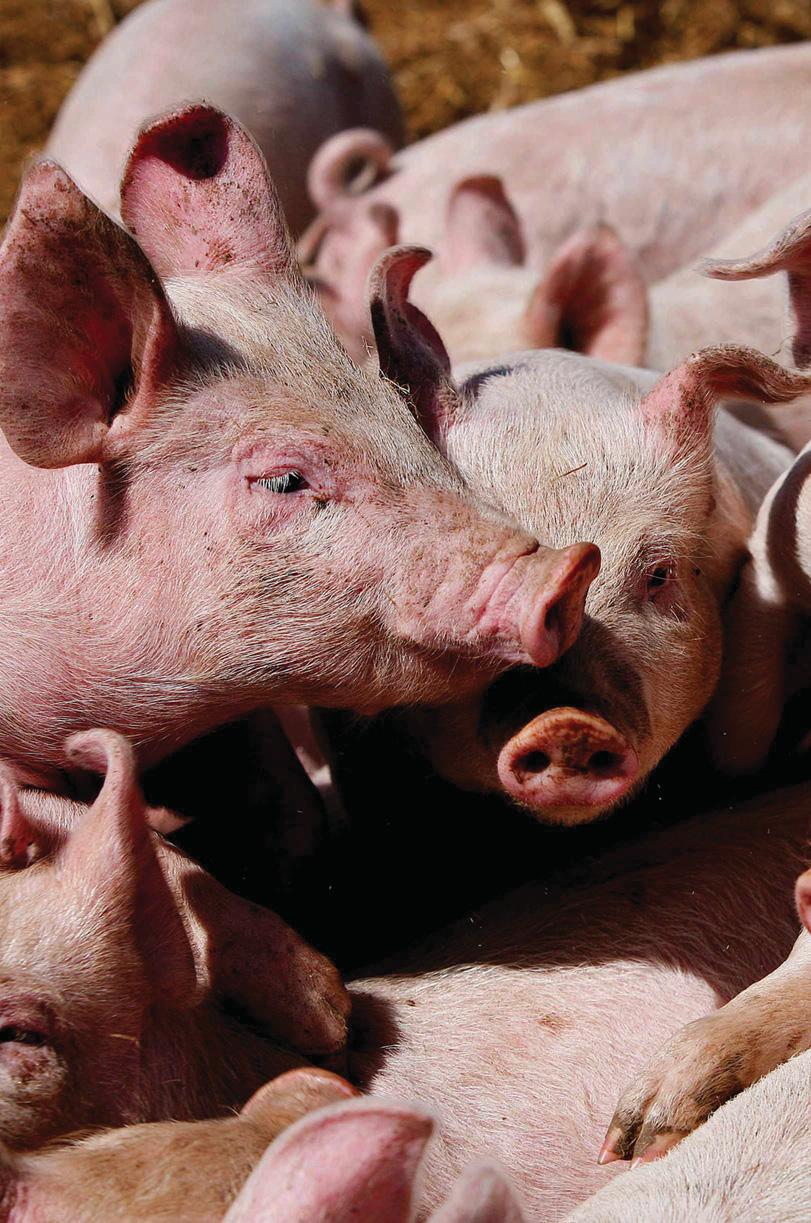
Antimicrobial medicines are vital for protecting humans and animals from bacterial and viral infections, but their widespread use is creating an enemy that experts say could be the biggest threat to health the world has ever seen.
The rise of the 'superbug' - bacteria, viruses or fungi that are resistant to antibiotics and other medications - could put millions of lives at risk each year as infections become untreatable, scientists warn. The threat is already a reality for many: in 2019, some 1.2 million people died around the world as a direct result of drug-resistant infections, while antimicrobial resistance (AMR) was linked to a further three million deaths.
In the UK, Professor Dame Sally Davies, England's former chief medical officer, has warned that, if left unchecked, superbugs could make the Covid pandemic "look minor". Unless the issue is properly tackled within the next 10 years, she grimly predicts, resistance will kill more people than the effects of climate change.
While work is being done to develop alternative treatments to antibiotics, such as viruses that kill bacteria and gene-editing technology, experts including Sally Davies warn the process is too slow. To make an immediate difference, they say the world needs to make strides in reducing the use of antimicrobials, starting with the largest user of antibiotics: the livestock industry.
GROWING DEMAND
About two-thirds of the world's antibiotics are used in animal agriculture, and the industry's use of them is predicted to grow even higher by 2030 as consumer demand for meat and milk in countries like China and India increases. When it comes to how the medicines are used on farms, however, the global picture is varied.
This story is from the July 2024 edition of BBC Countryfile Magazine.
Start your 7-day Magzter GOLD free trial to access thousands of curated premium stories, and 9,000+ magazines and newspapers.
Already a subscriber ? Sign In
This story is from the July 2024 edition of BBC Countryfile Magazine.
Start your 7-day Magzter GOLD free trial to access thousands of curated premium stories, and 9,000+ magazines and newspapers.
Already a subscriber? Sign In

Guilt-Free Meat? - Should the world stop eating meat to tackle the climate crisis? Chris Baraniuk meets an experimental farmer who says we don't all have to become vegetarians
Should the world stop eating meat to tackle the climate crisis? Chris Baraniuk meets an experimental farmer who says we don't all have to become vegetarians. Livestock farming around the world is facing scrutiny because of its greenhouse gas emissions. Globally, the sector contributes somewhere between 11.1% and 19.6% of total emissions. Meat production is roughly twice as bad as the production of plant-based food, according to some analyses. And beef is the worst of all. Study after study has suggested that, in order to curtail the devastating effects of climate change, we ought to shift to a diet containing less meat - or even go vegetarian or vegan.

Discover Cider Country - Explore mellow golden countryside, pedalling between medieval villages, historic inns and fruitful orchards, on a delightful Herefordshire Cider Circuit adventure with Julie Brominicks
Explore mellow golden countryside, pedalling between medieval villages, historic inns and fruitful orchards, on a delightful Herefordshire Cider Circuit adventure with Julie Brominicks. I'm cycling Porter's Perfection, one of three cider circuits developed for Visit Herefordshire over the past few years. Each showcases a section of this bucolic county's loveliest villages, pubs, orchards and cidermakers via lanes suited to bicycles - e-bikes for hill-averse cyclists like me. The idea is to allow you to appreciate the sights, sounds and smells of cider country while traversing roads never meant for modern cars. If you have dodgy knees, or are keen to indulge in the local adult apple juice as you go (remember, it's illegal to cycle while under the influence), Visit Herefordshire also promotes cider bus routes.

TOP 10 WILD AUTUMN FOODS
Make the most of seasonal abundance with foraging tips and recipe ideas from wild food expert Liz Knight

The taste of England
Amid pastures farmed by her family for more than four centuries, Mary Quicke is reviving forgotten dairy traditions to produce delicious Devon cheeses

How to eat 30 plants a week
As science proves the many health-boosting benefits of eating at least 30 different plants each week, Hugh Fearnley-Whittingstall shares recipes to help you meet the magic target

RARE RAFT SPIDER MAKES A COMEBACK
Thanks to dedicated conservation work, this impressive but vulnerable arachnid is resurgent in East Anglia

SPECTACULAR STONEHENGE FINDS
Following the latest astonishing revelation about the Stonehenge Altar Stone's Scottish origins, Dixe Wills looks at recent discoveries that have changed the way we view this impressive and enigmatic Neolithic monument

GALLOWAY NATIONAL PARK DEBATE
Would this protected status bring welcome recognition and attention - or overcrowding and problems for farmers?

Farmers are valued, so why do they feel we don't care?
For farmers out in their fields in all seasons, worried about the future as dramatic levels of rainfall blamed on climate change damage their crops, inflation and uncertainty push up their costs and what they see as unfair imports threaten their livelihoods, here's a spot of unexpectedly good news: the rest of us think you are doing a good job.

Pumpkin patches
Find the perfect jack-o'-lantern for Halloween at a pick-your-own pumpkin patch. Some are simple affairs in tranquil countryside; others offer activities ranging from ghost trains to spooky mazes.